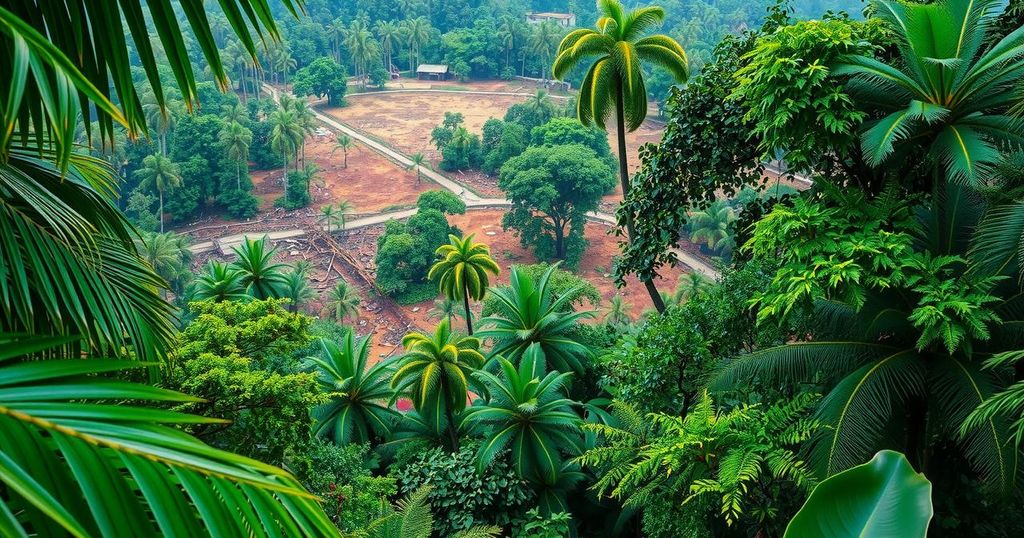Brazil faces criticism over deforestation in the Amazon for a highway leading to the COP30 climate summit. Locals and conservationists express concerns that the road threatens livelihoods and wildlife. Although the government promotes the highway as sustainable, there is growing skepticism regarding the environmental impact and the nation’s role in climate action.
Brazil is currently under scrutiny due to significant deforestation in the Amazon rainforest, undertaken to construct a highway for the forthcoming COP30 climate summit. This initiative raises serious concerns regarding Brazil’s dedication to environmental conservation amidst allegations of hypocrisy, as reported by various media outlets.
The new highway is projected to support an influx of over 50,000 delegates, including world leaders, who will attend the UN climate conference scheduled for November. It is intended to alleviate traffic congestion in the host city; however, the construction is perceived by locals as a threat to their livelihoods and has prompted warnings from conservationists about potential disruptions to wildlife migration patterns, as noted by The Telegraph.
Despite state government assertions of the project being “sustainable,” critics emphasize that the extensive deforestation undermines the objectives of a summit focused on climate issues. Environmental advocates contest that facilitating such a construction contradicted the fundamental ideals of a climate-centric gathering.
In defense of the project, Brazilian President Luiz Inacio Lula da Silva and Environment Minister Marina Silva have argued that this summit is crucial not only for the Amazon but also for highlighting the region’s ongoing needs. They stress that the conference aims to provide a global perspective concerning the rainforest’s vital role in climate stability.
Nonetheless, the highway project has ignited a fervent debate regarding Brazil’s environmental strategies. Critics assert that infrastructure-related deforestation jeopardizes the nation’s potential leadership in climate action. As Brazil prepares for COP30, the dilemmas arising from the Amazon’s impact introduce significant complexity to international climate discussions.
In summary, Brazil’s deforestation for the COP30 highway has drawn widespread criticism, contrasting the aims of the climate summit with actions perceived as environment-destructive. The government’s representations of the initiative as sustainable face increasing skepticism from environmentalists and the public. As COP30 approaches, the controversy underscores the tensions between infrastructure development and genuine climate action, raising critical questions about Brazil’s commitment to preserving the Amazon and leading global environmental efforts.
Original Source: www.socialnews.xyz




